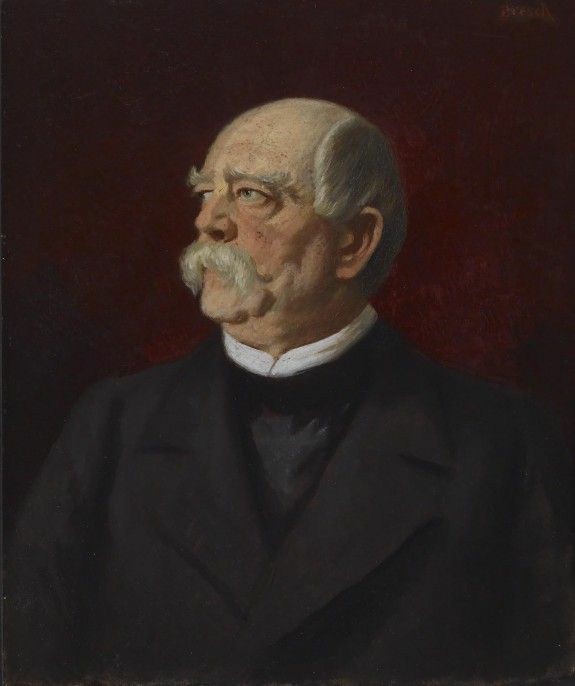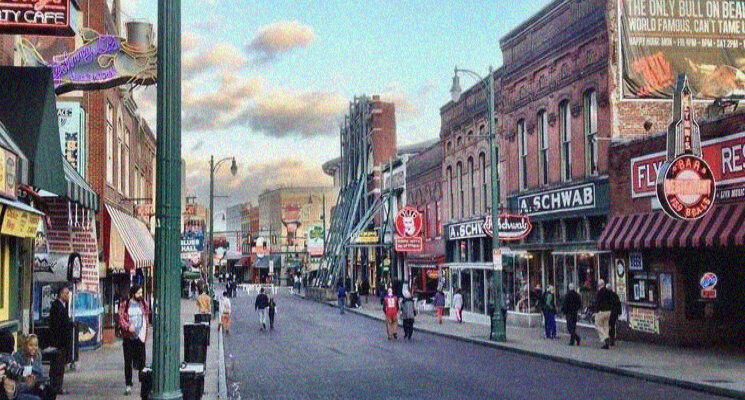Before we start, I want to preface this article by stating that I know the premise is going to be controversial to some, if not many, due to the fact that it deviates from well-established reactionary dogma. So, buckle up and get ready, because this article might seem highly off putting to read.
For the past decade, one mantra I’m sure you have heard repeated is that the Right must abandon the cities and escape to the countryside. The cities are doomed, they say, any minute now the collapse is going to happen; get out of the cities! I used to agree with this position, too. However, that has changed, and I am going to explain why.
If you are a regular reader of Identity Dixie, you may have noticed that I haven’t been writing as much recently. This is because I’ve been extremely busy; additionally, I like to write about things that give me a creative spark. To that end, I’ve been doing a lot of studying about all manner of things, and one of those has been infrastructure. By default, when you learn about the complexities of infrastructure it naturally ties into things such as development, land use, city planning, etc. These topics then go down their own respective rabbit holes with more strings attached.
Needless to say, I’ve been reading (and watching) a lot of information about the nuanced details that have, up until this point, kept Western society functioning. Say what you will about the cities, or the countryside, but both are part of a mutual ecosystem. One cannot live without the other; thus, it is important to understand both. Having migrated from the countryside to a city, it has given me a lot of eye-opening experiences regarding civilizational planning.
Also, do not mistake what I am presenting as a plea to abandon any ideas you have about a rural retreat (or redoubt). All I seek to do is provide an additional perspective and information which you may not have previously considered.
As much as people fantasize about becoming a farmer, rancher, or homesteader, it is much easier said than done. For a significant portion of rural “dreamers,” their motivations for living the country life are tied to the idea of civilizational collapse and/or civil conflict (or something more fantastical like a zombie apocalypse). Needless to say, these types of people are not ready for rural life, generally speaking.
For all of human civilization, we have had cities. The reality is that we cannot live without them. God made it so, and we cannot live without shelter. If you stay outside too long in the cold and without appropriate clothing, you die of exposure. Period, end of story. Shelter is a must, and we build them in all forms and fashions. We then realized that it’s a little easier to maintain not only our shelter, but what’s inside or outside of it, when you aren’t the only person doing everything. In turn, tasks and chores were divided up between the family. Then, humanity realized our survival odds went up when the tribe paired up to make additional shelters in the same area. Now even more tasks could be accomplished, and suddenly you have the recipe for a settlement, then a village, perhaps a trading post, and eventually a city.
With all of this productivity, there will be excesses. So, what do you do with it? You craft new things, or you trade or sell it. Now, we are getting somewhere.
If cities were not important, wars would not be waged over them. People would not fight for them. History is littered with historic battles over cities, from Troy to Acre to Richmond to Königsberg.
Cities became not only a representation of civilization, or safe harbor from the wilderness, but centers of power fueled by the scale of economies and commerce. As such, they became natural seats of government and the processing of resources. It’s significantly more efficient to store and produce things in a centralized location. Cities are important to the function of civilization and cannot exist without the importation of resources from the countryside. At the same time, life would be much harder in the countryside without the goods or services a city provides.
Cities are built for two main reasons – location and economics. While they are not mutually exclusive, both are important. A city in a bad location will almost always fail.
What does a good location look like? Many American cities were explicitly placed because of this very reason. Generally, a good location provides access to navigable waterways, a supply of resources, manageable terrain, etc. This is why we have many large cities near major water systems, such as the Mississippi River or natural bays such as Tampa Bay or the Chesapeake Bay.
Economies are also important; many cities sprang up because companies took advantage of an area’s natural resources. Some exist to this day and are still very successful, while others became ghost towns. A city which sprang up because of a company is Alcoa, Tennessee, which is named after the very company which built one of the most productive steel mills in the South. The Rust Belt is also littered with such places, but due to offshoring policies, bad economies, or poor management, they are receding.
There are, of course, reasons that cities fail, such as crime (negative for commerce and the citizenry) or natural disasters. A prime example is Hurricane Katrina and New Orleans, with the failure of the levy system which flooded the city. Even to this day, there are large swaths of the city which have not fully recovered. There are other reasons as well, such as unfavorable city governments that produce even worse city policies.
A common fallacy people have is that if civilization collapses, cities will cease to exist or function, and this notion comes directly from Hollywood (a good example is The Walking Dead). Bear in mind that these are the same people who think that you, as an average person, can purchase a $50,000 Tesla when Uncle Sam bans all internal combustion engines. We have volumes of recorded history that detail cities do not disappear. When the Roman Empire fell, did the city of Rome evaporate? No, the area remains settled and was rebuilt and is currently the capital of Italy.
Cities are the cradle of civilizational power. To control a civilization, you must control the cities. If you cannot physically occupy them through conquest, you have to control them some other way (by hook or crook). Liberal elites want you, as a rightwinger, to abandon the cities, so you cede more power and control to them. They will then use the might of that city to literally enslave you.
A routine question regarding this issue is: how do we take back our cities? The answer is in the exact same way they were built – you start small. This is why political districts are a thing. Take over one and expand outward. This is exactly what the Left has done. And this is what we must do, if we are to take back the cities our ancestors built. Remember, this is your home, not theirs.
Places like Memphis and Baltimore were not always the crime ridden husks that they are now. At one point, they were shining jewels of the South – representing not only our civilization, but seats for our high culture.
Make no mistake, our enemies want us to abandon the cities, which is exactly why they do not stop people from leaving them. For every inch you cede, they will follow in your wake. Collectively, we cannot afford to discard any more of our ground. Part of “retaking everything” includes reclaiming our cities. Our cities are also our home, too. We cannot survive without them.
I hope in reading this I may have got you thinking a little differently about our Southern cities. Remember that they are ours, and we must retake them. I thank you for your readership.
God bless you and God bless Dixie.

I have seen three emperors in their nakedness, and the sight was not inspiring.






A really good book about the history of cities.
Babylon is everywhere: the city as mans fate. Wolf Schneider 1960. I thought I’d share that with you.
In the well researched book the author makes the point of how cities were always walled in and subjugated the rural population, and most wars were between the free people of the country and the city or other city’s fighting each other, like the war of Northern aggression. Atlanta and Charleston were the first Southern monuments destroyed, standing like a testimony to the world of Southern grace and charm. Northern cities could not compete with it, the identity and character that Southern cities produced needed to be destroyed, and it hasn’t stopped,
today they are building city’s with cyber walls. We have miles and miles of new apartment complexes creeping out from the city’s out west here. Biden stopped single family home building and is pushing this, communal living as a rule was started by Stalin.
I agree with your sentiment, we need to keep urban centers as hubs of Freedom, beauty and creativity, instead of hubs of subjugation and dark propaganda that they are turning into.
Economist James Howard Kuntsler (“The Long Emergency” and “Living in the Long Emergency”) writes about what civilization will look like “past peak oil” and prognosticates that we will be forced to retreat back into the “hub and spoke” dynamics that existed prior to World War II, with small cities placed on navigable waterways or similar geographically strategic routes, containing bits of small-scale industry and trade, and surrounded and supported by a variety of farms. He wrote a fascinating fiction-series laying out what his post-oil economy would look like, called the “World Made by Hand” series. While his motivation for envisioning such a return to “small cities” is a bit different than yours (nationalism), I think you will find that his economic studies (both the economic texts, as well as his fiction series) will compliment and strengthen your own ideas. He also has a rather humorous blog, “Clusterfuck Nation,” and its been funny to watch him switch gears from a former liberal to libertarian.
Very good Sir, totally agree.
Don’t let the Boomer conservatives read this article lol – they unironically believe that saving and improving our cities from decay and crime is socialism. On the topic of improving America’s rail network and general public transportation (the clean and efficient kind you see in Japan, China, and Europe), I once saw a Boomer make the claim that urbanists are the real Nazis because they also had rail networks, and that any attempt to re-adopt the system that make America wealthy and connected is just one step on the road of putting people into cattle cars bound for Auschwitz.
It’s nice to see another Urban planning enthusiast. A channel that is excellent for people who want to get into the topic is NotJustBikes. Although the guy is a Leftist, the points he makes are solid and straight from the Strong Towns organization.
One thing the “crush the urbanite’ pro-rural people get very, very wrong is this world-view that cities are inherently degenerate and that “REAL Westerners have always lived in the countryside. In reality, civilizations are *always* tied to cities and the city has always been where the real work in theology, philosophy, etc are pioneered. The early Christians mainly lived in cities, as opposed to the “heathens” or “pagans” (literally: country bumpkins in ye olde Latin/Greek
One thing the “crush the urbanite” people get wrong is that cities can be taken back in the short term, before a major governmental collapse or the US Govt becoming what’s known as a “failed state”
You forgot one huge red flashing fact – what about all the blacks etc? Or should I say “teens” as in a mob of “teens” did this or that … and it’s ALWAYS blacks. HOW would we “take back” southern cities? Check city-data and see the % of each race in all cities. To take back the cities we’d have to take back the south. It would have to be an all white south.
The other way ( a bandaid ), would be to go rural and create our own cities out there. But blacks and 3rd world labor used as labor in building would stay! We’d have to have white south loving developers who would keep our budding cities “lily white.”
I would point out that in the Soviet invasion of Afghanistan, the Soviets could control the cities but not the rural areas. The United States had the same problem. I know a friend who went to Iceland and walked the streets of Reykjavik by herself from 2 to 3 AM in the morning. If you try that in Memphis or Little Rock you will not survive the night!
Blacks escaping crime ridden cites are migrating to the used-to-be-mostly-white suburbs . Whites are moving out of those neighborhoods creating voids for more blacks to fill. Soon, the blacks are back at square one only instead of the city now in black suburbs. I drive by it and see it daily.
And The rural space between any 2 cities is bought up by developers and connected with “affordable housing”. It’s anyone’s guess who lives there. But an easy way to find out is to head to the local Walmart.
Cities ran by communists/activists have collapsed a long time ago. It’s just not reported as such. Just look at the birthplace of the civil rights act.
I’ll take my chance at farming.
I would never considering my home town of Chattanooga TN to the degenerate plague of urban libs (colloquially known as shitlibs). This is my home. My children were born and raised here. I was born and raised here. My father was born and raised here. My grandfather was born and raised here, going all the way back to my 3 great grandfather who was the Colonel of the Tennessee Fighting 5th in the War of Northern Aggression. My ancestors blood is in this soil. I will make my stand here, just like the Colonel did 160+ years ago.